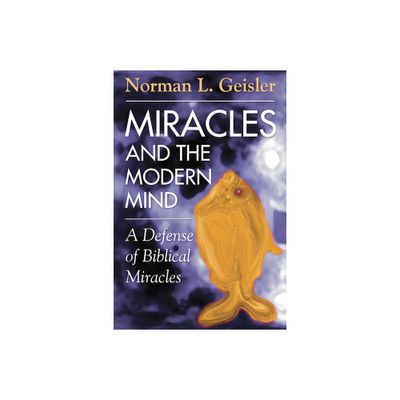Home
Miracles and the Modern Religious Imagination
Loading Inventory...
Barnes and Noble
Miracles and the Modern Religious Imagination
Current price: $44.00


Barnes and Noble
Miracles and the Modern Religious Imagination
Current price: $44.00
Loading Inventory...
Size: OS
*Product Information may vary - to confirm product availability, pricing, and additional information please contact Barnes and Noble
According to surveys, most Americans today believe in miracles. For many others, however, a belief in miracles seems incompatible with a modern world view. Why does interest in miracles persist even in a secular era? Why are miracles such a controversial part of Western religious thinking? In this fascinating book, Robert Bruce Mullin traces the debate about miracles from the Reformation to the twentieth century, focusing particularly on the years from 1860 to 1930. He examines the way preachers, faith healers, psychic researchers, scientists, historians, philosophers, and literary figures have grappled with issues of the miraculous.
Before the mid-1800s, the author contends, Catholics had defended post-Biblical miracles, while Protestants insisted true miracles were limited to the Biblical era. By the end of the nineteenth century, however, the Protestant position had largely collapsed, and two opposing views emerged in its wake. Some Protestants wished to jettison all miracles—even those recorded in the Bible. Others took a new interest in modern miracles, believing that the presence of miracles could help ground contemporary religious faith. This transformation in attitudes toward miracles not only changed the Anglo-American religious landscape and created a new focus of debate, Mullin says, it also opened up a new basis for accord between Protestants and Catholics.
Before the mid-1800s, the author contends, Catholics had defended post-Biblical miracles, while Protestants insisted true miracles were limited to the Biblical era. By the end of the nineteenth century, however, the Protestant position had largely collapsed, and two opposing views emerged in its wake. Some Protestants wished to jettison all miracles—even those recorded in the Bible. Others took a new interest in modern miracles, believing that the presence of miracles could help ground contemporary religious faith. This transformation in attitudes toward miracles not only changed the Anglo-American religious landscape and created a new focus of debate, Mullin says, it also opened up a new basis for accord between Protestants and Catholics.


















